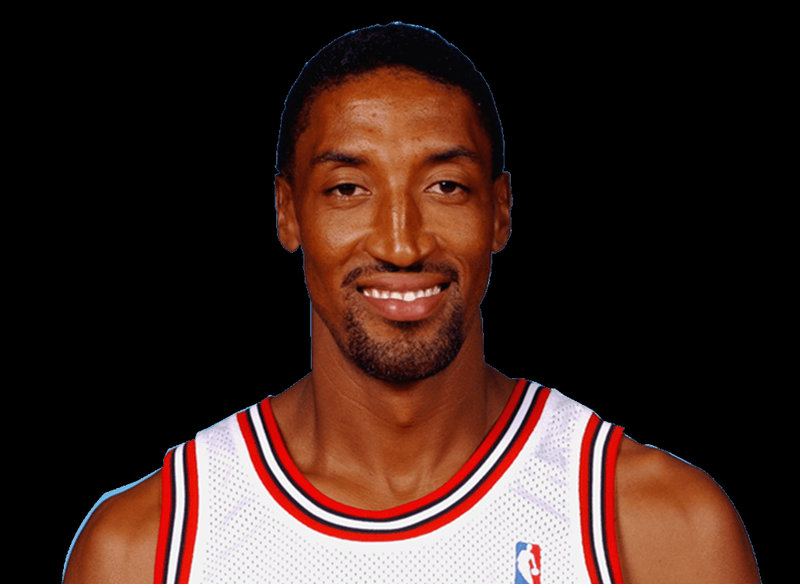Is Scottie Pippen’s leadership underrated in Chicago’s defensive dominance?
Can Scottie Pippen’s leadership be properly understood in the context of Chicago’s anatomy of defensive dominance? This question gets to the crux of understanding the defensive prowess defined by the 1990s Chicago Bulls. Yes, Michael Jordan was the superstar, the must-see, can’t-miss factor, the man who often occupied center stage for his scoring and clutch-act heroics. But to many, if not most, observers, when it came to not just winning but winning with historically great defensive precision, the Bulls turned to Scottie Pippen.
The Defensive Backbone of the Bulls
More than being just a fantastic player, Scottie Pippen was the cornerstone of the Bulls’ defensive strategies. He played a significant role in the team’s defensive supremacy—”The Jordan Rules” was the lauded nickname for it. His versatility allowed him to guard different positions, making him an asset that was indispensable. During the 1995-1996 season, when the Bulls finished with an otherworldly 72-10 record, Pippen averaged 2.9 steals per game, ranking him sixth in the league.
Besides his pilfering, Pippen was a two-time NBA All-Defensive First Team member and the 1994 NBA Defensive Player of the Year runner-up. Moreover, his ability to read the game and anticipate plays was second to none. This skill set not only made him a defensive juggernaut but also elevated the performance of his teammates.
From a statistical standpoint, the Bulls ranked high in defensive efficacy while winning six championships. In the 1990-1991 season, for instance, they had a defensive rating of 101.5 that was among the best in the league. What is more, their successes displayed how Pippen’s defensive instincts and leadership helped shape a culture of excellence on the court.
Is Scottie Pippen’s Leadership Underrated in Chicago’s Defensive Dominance?
When evaluating Pippen’s leadership, it’s essential to consider the intangible qualities he brought to the team. His work ethic set a standard. Consequently, teammates often followed suit, adopting a similar commitment to defense. For businesses, this underscores the importance of leaders who cultivate a culture where that sort of commitment isn’t just expected, but is modeled and, in a very real way, taught.
Pippen’s influence as a leader extended well past the lines of the basketball court. Much like the great and unfortunately late John Wooden did at UCLA, Pippen was the kind of leader who not only served as an influence on the court, but also in the locker room—both during and after games. Wooden did it by way of example and through motivational talks with teams he led to 10 national championships. Pippen did it in part via his noble midwestern manner and with similarly motivational moves that would lead his Bulls teams to win not five, but six NBA championships.
Statistics Highlighting Defensive Dominance
A number of stats show how Pippen affected the Bulls’ defense. In the postseason, his was not the average kind of defensive rating. It rated him as surpassing the norm for a ton of good defensive plays as well what was obviously good for him as a defender (near the top of that list, on the Bulls anyway, as it turns out, was recently retired assistant coach Ron Harper). During the finals of our walkthrough, it became clear that scoring 90 points against the 1995-96 Chicago Bulls, 1996-97 Chicago Bulls, or 1997-98 Chicago Bulls, was more or less an impossible task. Why? Because defending those championship teams was a near-impossible task.
Think about the 1997 NBA Final against the Utah Jazz. Pippen averaged 1.7 steals and was instrumental in stifling star player Karl Malone’s effectiveness. His efforts at both ends of the court made it clear how essential he was in crucial game situations.
During the Bulls’ historic run, Pippen’s defensive versatility allowed Coach Phil Jackson to implement a scheme that required every player to understand their defensive responsibilities. That’s what made the famed “Triangle Offense” possible.
Conclusion: The Business Lessons Learned from Pippen’s Leadership
To sum up, Chicago’s defensive prowess had Pippen written all over it. Pippen took the path less traveled to the Hall of Fame. He didn’t reinvent civilian life; he just influenced it profoundly. Pippen plays a big part in our civilization. That’s because his leadership means something in business, too. Pippen was not just good at defense; he was also a pretty good defensive coordinator. He was not a commander in the way that General Patton was a commander. He was by no means a dictator. Pippen’s way was the way of the pleasing personality and the path to civility.
It’s clear that Pippen’s influence is often overlooked. However, recognizing his contributions goes a long way toward giving us valuable insights into what effective leadership looks like—both in sports and business. We ask the question: Is Scottie Pippen’s leadership in Chicago’s defensive dominance very underrated? We say it is, and we name several reasons why recognizing the significance of Pippen and his leadership delivers not just lessons for basketball, but broader insights that apply to many kinds of endeavors. These are our reasons.
Explore More on us
Discover insightful blogs on our Blogging Space, check our SoloStat Score Explanation, and learn more about NBA All-Defensive Team.


